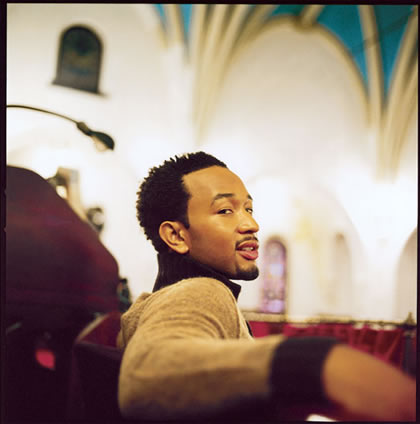
ONCE AGAIN • John Legend
A few years ago, I interviewed producer Jimmy Jam and asked him why so much modern R & B music begins with samples of well-known songs. He said, "My feeling about sampling is that it's sort of like redoing the song, but it's redoing it and making it for today's audience. I think in a way it's a good thing because what it does is make people go back and listen to the old record."
I dug out this quote after listening to "Save Room," the catchy opening track of John Legend's second album. The song not only contains a sample of "Stormy," the 1968 hit by Classics IV. It has the same melody, with new words by Legend. Elsewhere on the album, "Each Day Gets Better" borrows its chord progression and groove from the Four Tops and "Heaven" swirls around a vocal hook by blaxploitation composer Monk Higgins.
What sets John Legend apart from so many of his contemporaries is that he doesn't use samples because of a dearth of original ideas. He has the chops to write songs that are more than mere overlays on established classics. "Show Me," "P.D.A. (We Just Don't Care)" and "Coming Home" all float on light infectious grooves and melodies. And though they make nostalgic nods to decades gone by, they still sound fresh and new.
What also gives Legend leverage over his peers is his warm-hearted voice. It's so refreshing to hear a singer who doesn't over-emote and cop all kinds of thug-life attitude. When Legend says he is coming from a Curtis Mayfield-Donny Hathaway-Stevie Wonder place, it's not just lip service. Just listen to his assured delivery on "Slow Dance" and the standout "Maxine."
So, as Jimmy Jam says, this record may make you go back and listen to your old Four Tops and Classics IV albums, but for once it won't make you sigh, "They don't make 'em like they used to." • Bill DeMain

|
listen to clips |
| return to covers | |
| buy it here or here | |
| johnlegend.com | |
|
|
| puremusic home |